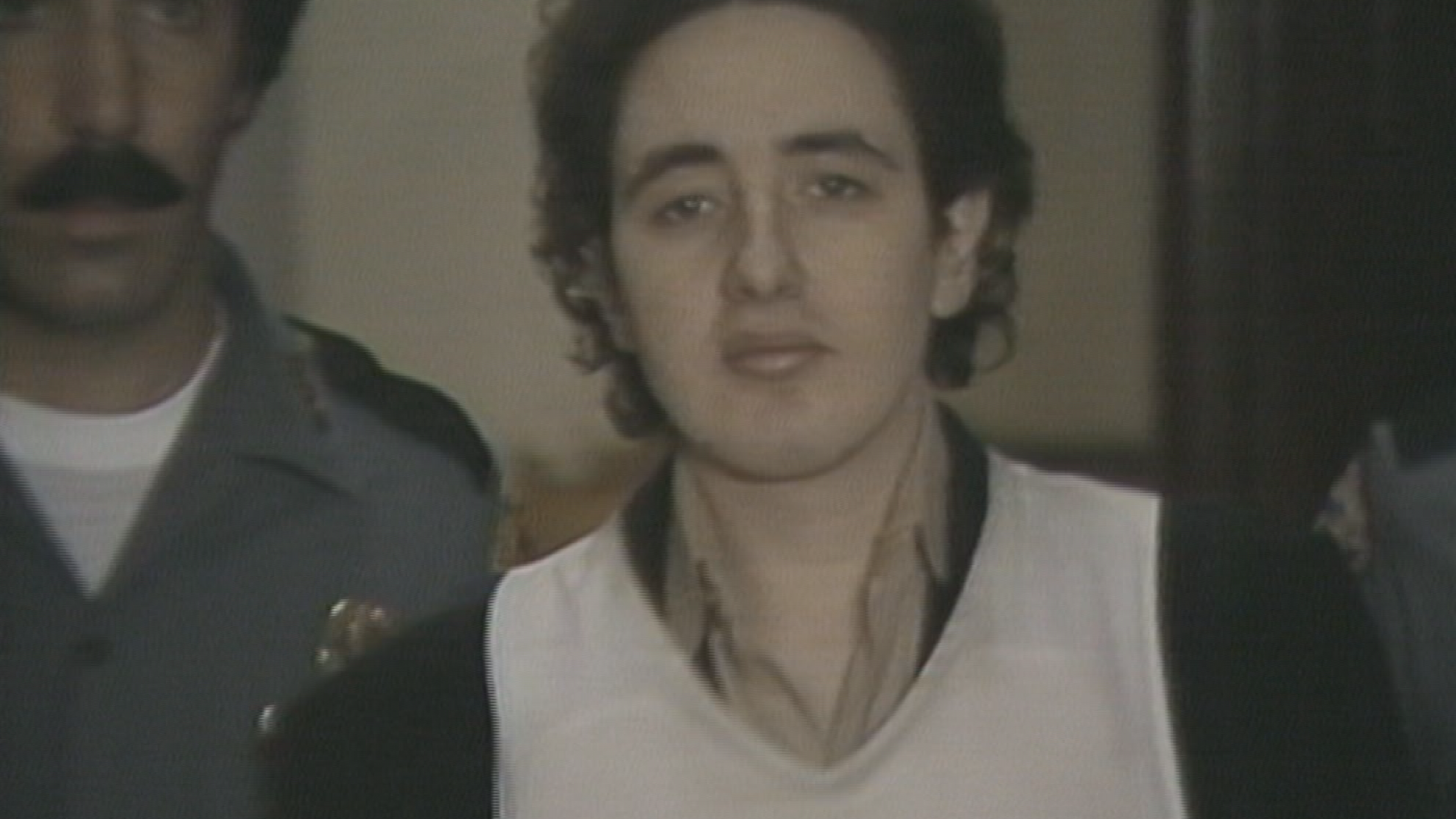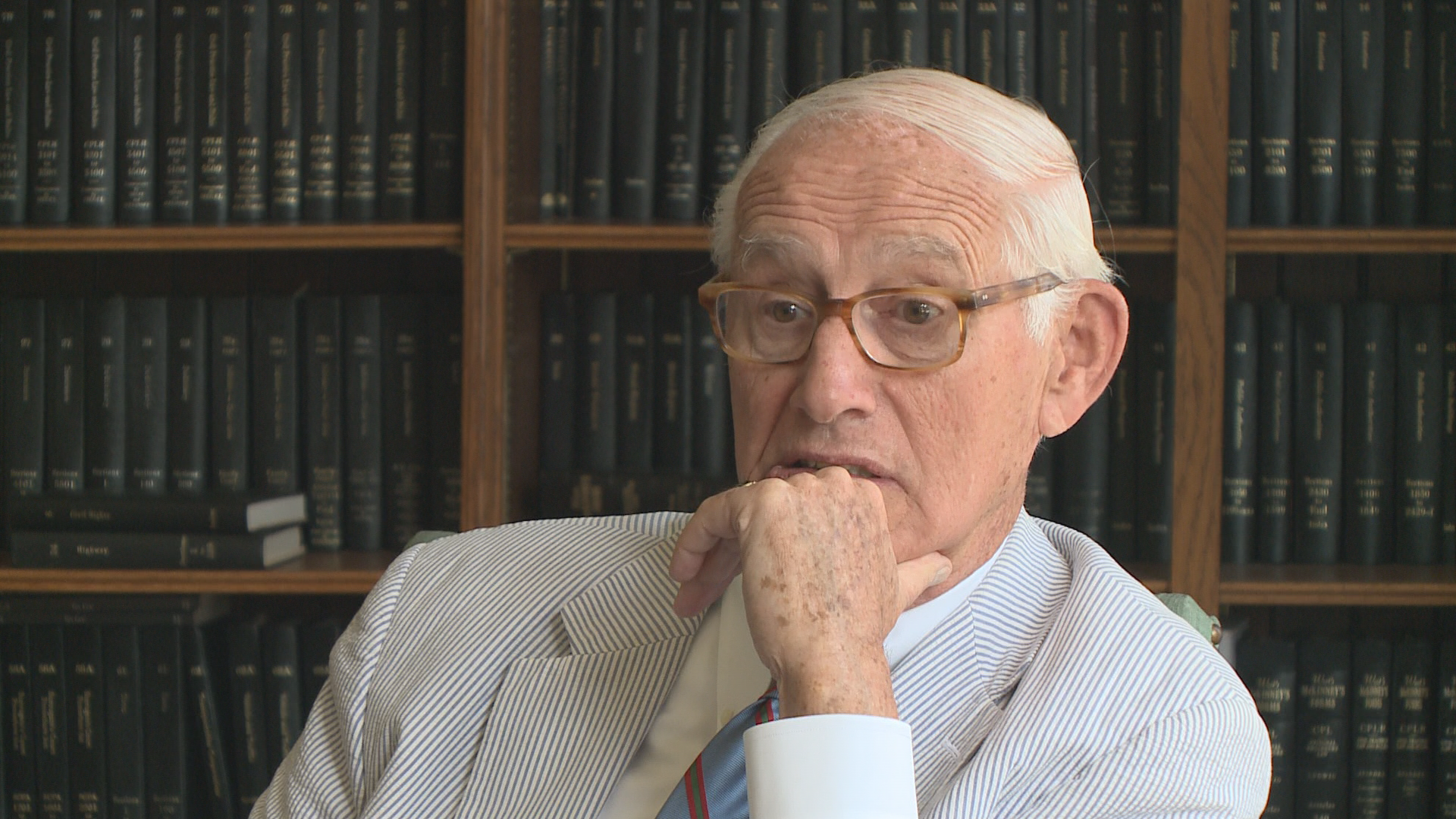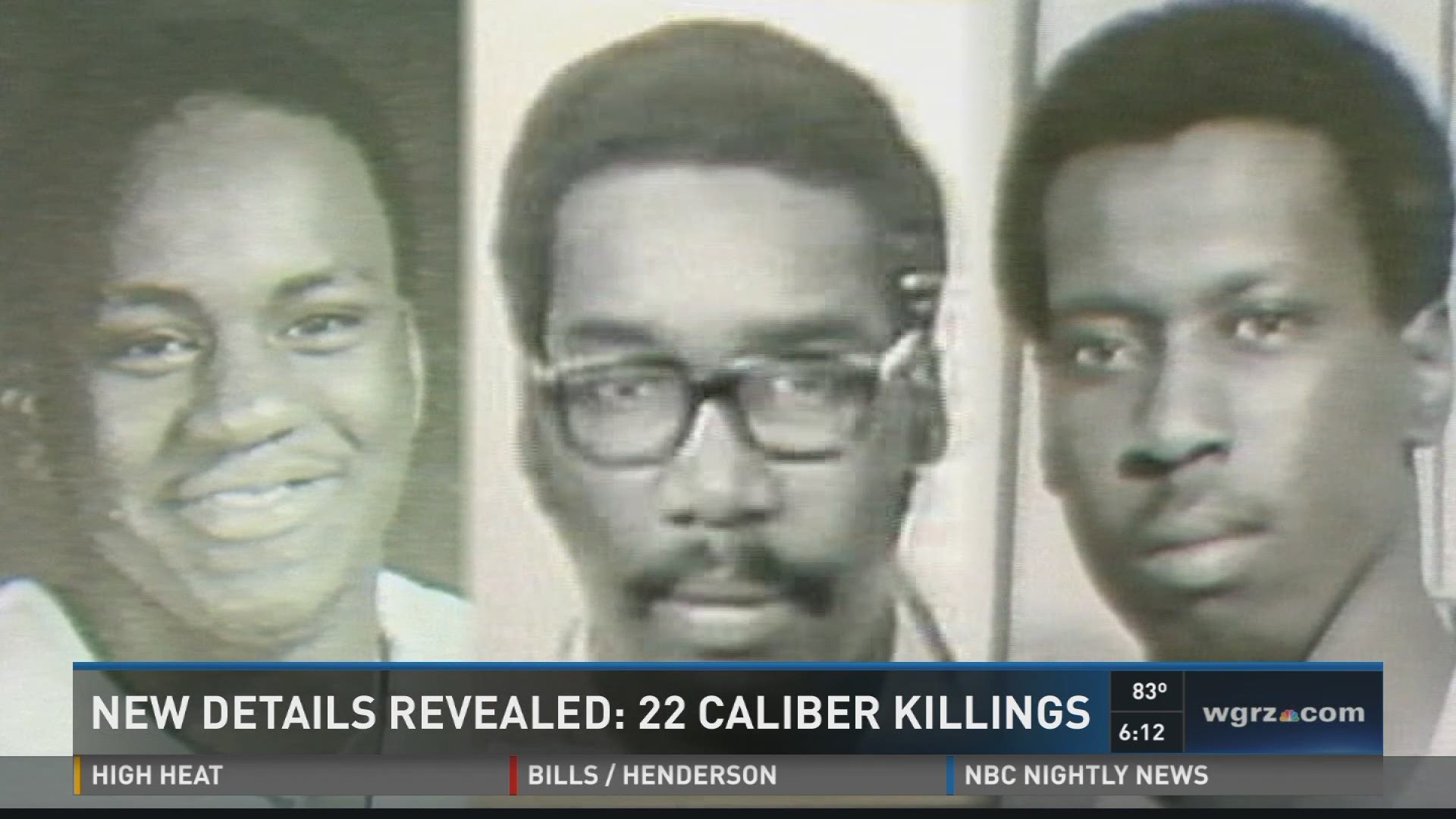Buffalo, N.Y. Thirty six years ago Buffalo had serial killer on its hands.
In September of 1980, four black men in Erie and Niagara Counties were shot to death with a 22 caliber gun
In addition, two black Buffalo cab drivers were murdered, their hearts cut out, and other black men were attacked, seemingly at random, over the coming weeks.
Buffalo, especially the black community, was in a panic.
Ed Cosgrove was the district attorney back then.
2 On Your Side's Scott Brown: “How much pressure did you feel, especially from the black community, to bring this person to justice?”
Ed Cosgrove: “I did feel the community pressure. I had to make sure that they understood, as difficult as it was for them to understand, what it was that we were going to do.”
Cosgrove put together a task force consisting of homicide detectives, state police and the FBI to try and find the serial killer.
But the killings didn't stop.
The task force developed a profile of the killer.
“We knew that we probably had a singular man, white man. And we thought it was somebody that knew the community, someone that was brought up in the community,” said Cosgrove.
But the attacks continued. In October, a black patient at ECMC was attacked, a white assailant tried to strangle him.
The following day, the Reverend Jesse Jackson came to town and spoke to the black community.
I was a young radio reporter at the time and covered the meeting where Jackson urged residents not to try and take matters into their own hands, warning to do so would just give police a reason to shoot them.
Finally, the following spring, D.A. Cosgrove got the break he'd been waiting for, praying for.
At an army base in Fort Benning, Georgia, a white soldier attacked a black soldier. While he was in a psychiatric unit, the white soldier volunteered that he had killed a number of black men in Buffalo.
Within hours, Cosgrove received a call from authorities at Ft. Benning.
And within an hour after receiving that phone call, Cosgrove went to the East Side home of Joseph Christopher where he sat down with Christopher's mother in her kitchen.
This is the first time Cosgrove has spoken publicly about that meeting.

“It was very sad,” said Cosgrove. “She immediately told us she had a troubled son and I had to be more than frank with her in terms of why I was going to do what I was going to do, and then we proceeded to take her house apart and we found what we found and that was it, it was pretty awful.”
What investigators found both at the home, and at a farm in Chautauqua County, were shell casings and a gun barrel that definitively tied Christopher to the murders.
Buffalo's nightmare was over.
Christopher would be tried and convicted for the first three 22 caliber killings.

Three years later, Christopher's convictions were overturned on appeal.
At the retrial, Christopher's new attorneys admitted his guilt, but used an insanity defense.
One of the key pieces of evidence: a videotaped interview Christopher did with a psychiatrist hired by the D.A.'s office to examine him.
In it, Christopher said at the time of the murders he was hearing voices, and that he thought he was in a race war.
“I had a mission that I was supposed to kill people. I melted down a 22 and started killing people. I believed the TV could hear what I was thinking and that people could imprint things into my head,” Christopher said during the interview.
At the time, now prominent Buffalo criminal defense attorney Tom Eoannou was a young assistant district attorney working on the case with a senior prosecutor, Al Ranni.
Scott Brown: “How big a trial was it at that time?”
Tom Eoannou: “It was as big a trial as I've ever seen, right up until this day, it was just an enormous event.”
Eoannou says Christopher's interview with the psychiatrist caused the prosecution a lot of worry.
“He was a very, very sick young man,” said Eoannou. “We worried about that (video) tape from the beginning to the end.”
Scott Brown: “Did you believe his actions were all due to his mental illness?”
Tom Eoannou: “All the way through, I had concerns that he was more sick than criminal and honestly in my opinion, maybe far more sick than criminal.”
And in the end, the jury in the second trial reached a compromise verdict, finding Christopher guilty, not of murder but of manslaughter due to extreme emotional disturbance.
Today, looking back more than three decades later, both Eoannou and Cosgrove call it the biggest cases of their careers.
Scott Brown: “It's been 36 years, but it seems like you have vivid, vivid memories of this?”
Ed Cosgrove: “Oh my goodness yes. Oh, it was a terrible time, it was a terrible time for the community.”
Scott Brown: “You've been doing this a long time, does anything compare to the notoriety, the publicity that you went through in this case?”
Tom Eoannou: “No, nothing at all. I've never seen anything like it and I don't know quite frankly if we ever will.”
Joseph Christopher would die in prison of cancer in 1993.
Although he was never charged with the murder of the two cab drivers, Cosgrove is sure Christopher committed those crimes as well.

